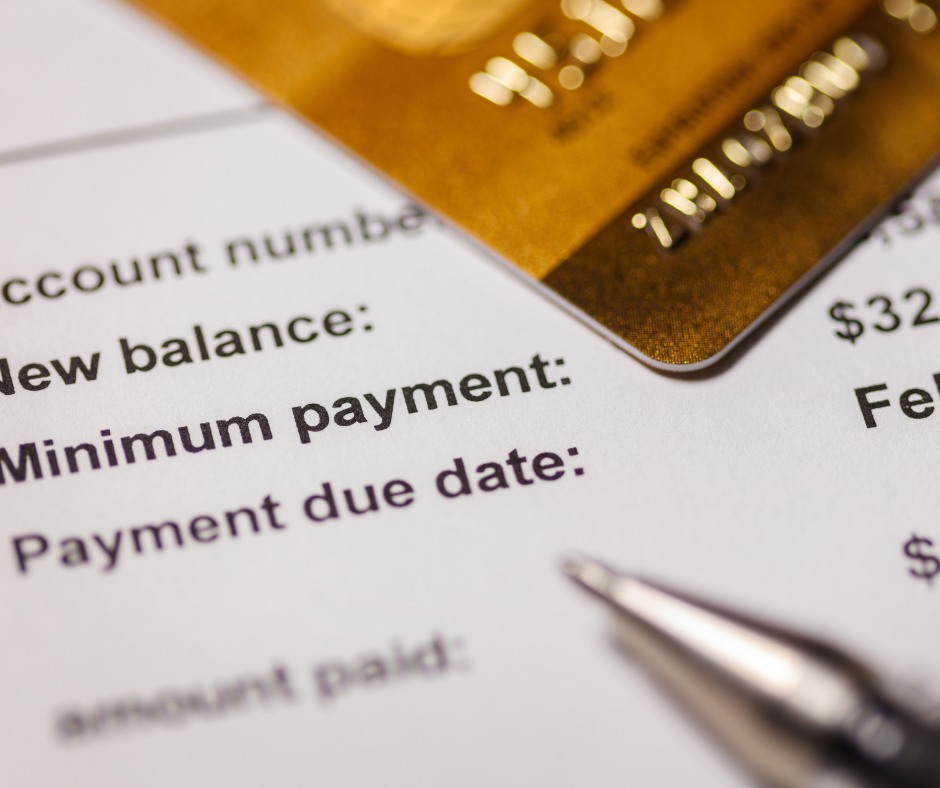What Happens When You Only Make Minimum Payments On Credit Cards

Many of us opt for auto-pay when making monthly minimum payments on our debt.
Of course, paying only the minimum is sometimes necessary when conserving cash in the short term.
It also protects your credit score and saves you from late fees.
*** SPECIAL NOTE *** – If your credit cards, personal loans, or medical debts have become unmanageable and you owe over $20,000… then go here for debt relief. We can help!
However, this set-it and forget-it attitude is not a long-term strategy, and you may experience negative consequences if you don’t work more aggressively toward paying down your debt.
How Your Minimum Payment Is Calculated
Each creditor calculates minimum payments differently, but most set a “floor” of $25 to $35 as the lowest minimum payment.
When your debt is less than the floor, your minimum payment will be your total debt rather than the floor.
For example, if your floor is $25 but your statement balance is $12, your minimum payment will be $12.
Creditors may also calculate minimum payments as a percentage of your principal balance (e.g. 2-4%). You will then be charged the percentage rate if it is greater than the floor.
What Happens When You Only Make The Minimum Payment?
Only making a minimum payment isn’t such a bad thing if you have a 0% APR introductory offer.
Otherwise, you’re going to rack up interest charges, add to your debt, and pay more in the long run.
On the other hand, by paying more than the minimum required, you reduce your principal. That means paying interest on a smaller balance and eliminating your debt faster.
Keep in mind that any payment you make goes toward paying off interest and fees before your principal, which is another reason why racking up interest is a bad idea.
Will Making Minimum Payments Hurt My Credit?
Only making minimum payments protects your credit in theory, but it can have indirect adverse effects.
First, you’ll be racking up more interest and paying back your debt over a longer time frame, which means more opportunities for mistakes.
Second, your debt-to-income ratio (DTI) will suffer. Having a lot of outstanding debt relative to your income won’t affect your credit score, but lenders will see you as a greater risk and may refuse to lend to you or give you a less favorable interest rate.
Start Managing Your Debt Today
If you are having trouble making debt repayments, you may want to consider contacting a debt relief company that can help you navigate the process.
At Americor, we understand the unique financial challenges people are facing today.
As America’s trusted source for debt relief solutions, we aim to empower you with financial knowledge that can lead to informed decisions, whether it’s about savings, investments, or managing debt.
If your debt has become unmanageable and you have difficulty making your debt payments each month, then you should consider a FREE consultation call with one of our certified Debt Consultants, who can provide personalized debt relief advice tailored to your specific needs.
By taking proactive steps today, you can put an end to your financial stress and work towards a brighter financial future.
Remember, there is always hope for debt relief, and our team of experienced professionals are ready to guide you on your journey to regaining control of your finances.
For more information on Americor’s debt relief services, contact us today to see how we can help you eliminate your debts, and get on the fast-track to becoming completely debt-free!